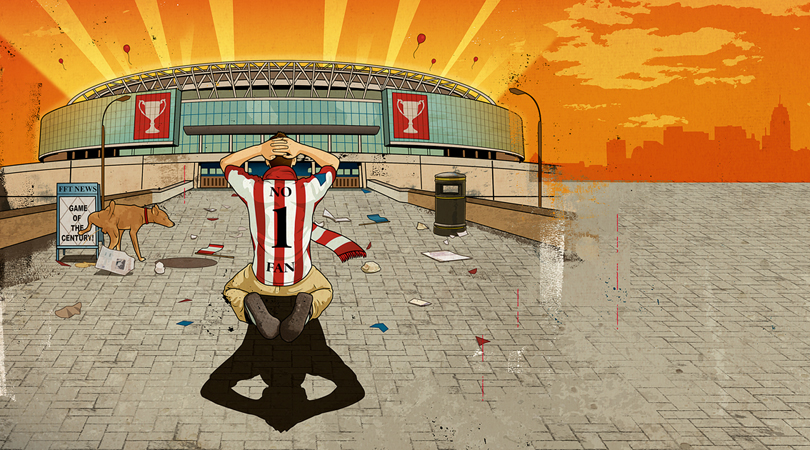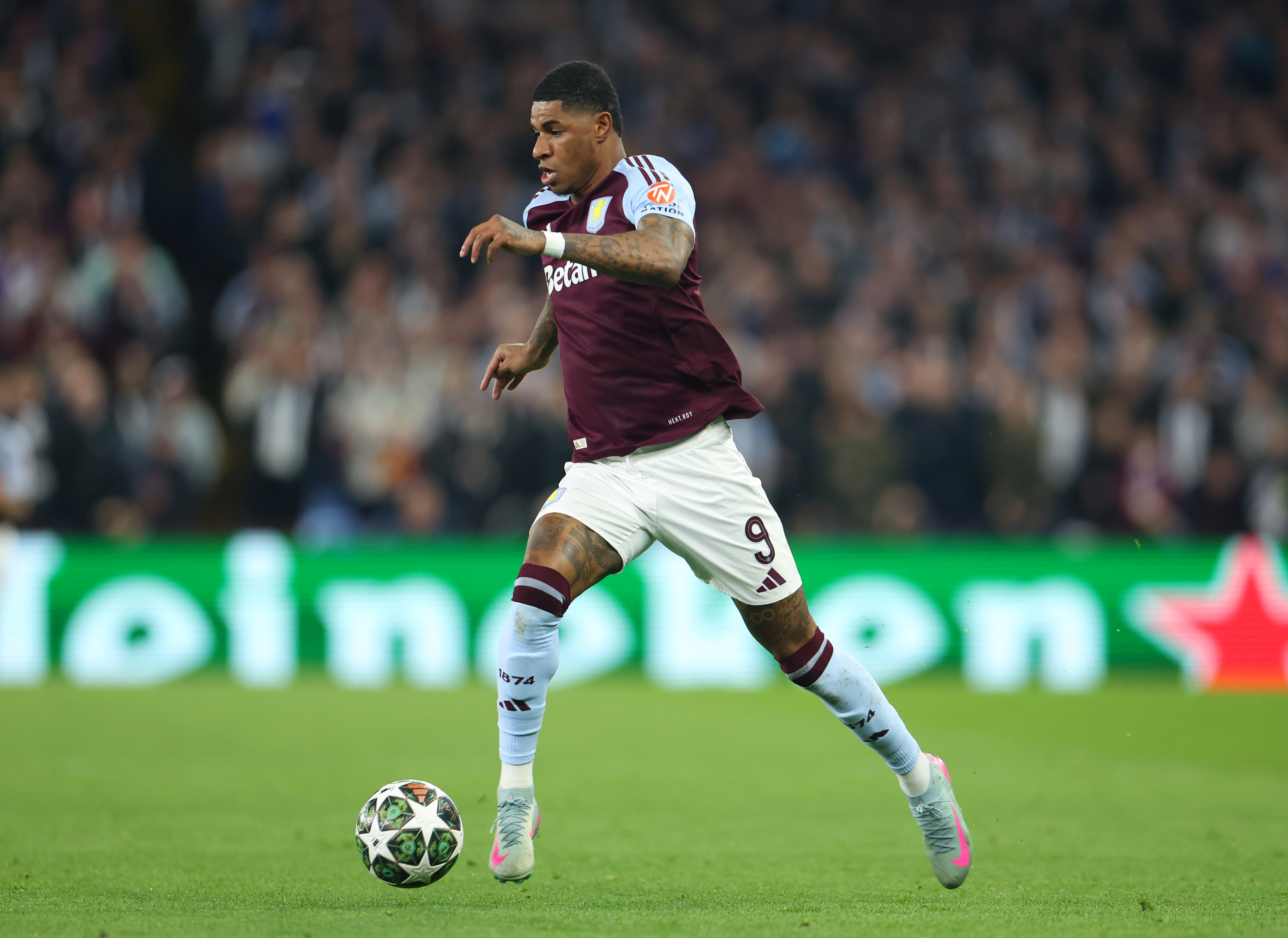Why does everybody have it in for Paul Pogba?
The Manchester United midfielder has an up-and-down relationship with the nation. But why?
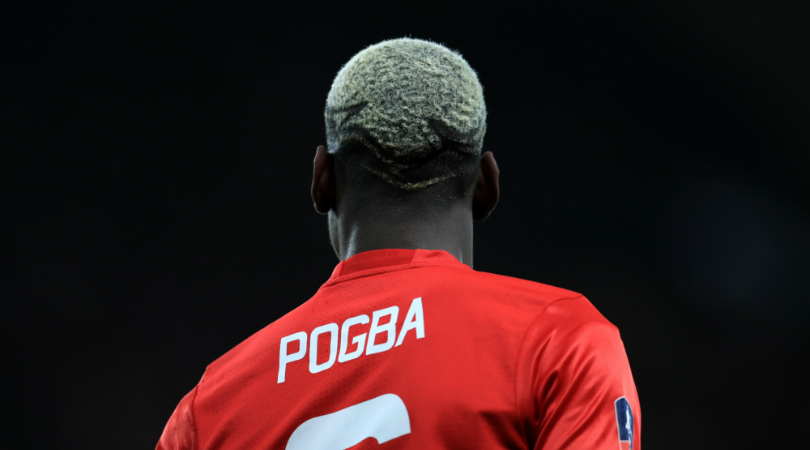
It was strange, but still the right thing to do.
Jose Mourinho bit down on his own sense of injustice following Manchester United's FA Cup quarter-final defeat to Chelsea, choosing instead to mount a public, effusive and slightly contrived defence of Paul Pogba, his ailing midfielder. Mourinho played fast and loose with the hyperbole, to the point of parody, but he was still picking his words wisely. Pogba needed a show of faith.
Game after game, the world's most expensive footballer continues to labour. Neat touches come in two and threes, offering a quick glint of the exorbitant ability he inarguably possesses, but there remains little impact at the point of delivery. United themselves are a stuttering, semi-functional side, but Pogba's personal malaise seems to have come at the cost of his easy charm.
At his most radiant he exudes a cool, infectious charisma but now, having endured seven months of erosive judgement, the light in his eyes has dulled and his expression has drooped to a perma-frown.
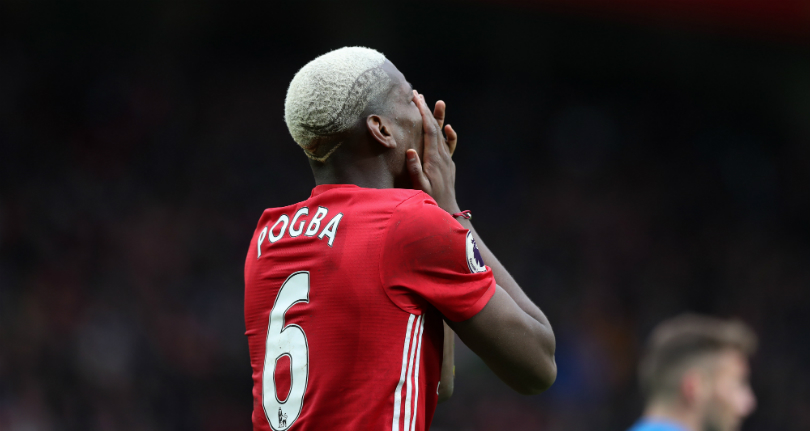
There's an atmosphere around Pogba. Hatred is too strong a word, but there's certainly an appetite for his failure. The usual jealousies that are focused on young, wealthy players are as apparent as ever, but to see him purely as a victim of envy is probably to miss the wider context; there's something else at work.
Pogba rejoined United at a strange time in their history. They remain on an unprecedented hiatus from the Champions League and are no longer a season-to-season contender domestically, yet they retain all the trappings of decadent success. While not necessarily progressive on the field they are, for the second time in three decades, at the vanguard of professional football's financial evolution.
Every aspect of Old Trafford life seems now to have a cash value and the club's football performance has had no discernible impact on their commercial appeal.
Get FourFourTwo Newsletter
The best features, fun and footballing quizzes, straight to your inbox every week.
There's an atmosphere around Pogba. Hatred is too strong a word, but there's certainly an appetite for his failure
That's been a great disappointment to rival supporters. Call it petty, but it's true. Those whose earliest footballing memories date back to the early 1990s have never known United to be anything other than a colossus and were forced to console themselves with the assumption that, eventually, the cycle of Alex Ferguson's success would come to an end and the club would fall back into the chasing pack.
That hasn't happened. Ferguson retired, but United were large enough to survive the infrastructural and personnel fractures created by his departure. On the field, the may look like a pale imitation of what they once where, but away from it they remain Manchester United, the biggest club in the world.
That has created a great deal of resentment and Pogba's transfer, through no fault of his own, has stirred that beligerance.
Appearances: 40 (39 starts)
Goals: 7
Assists: 5
Passing accuracy: 83.7% (PL and EL only)
Key passes pg: 1.9 (PL and EL only)
An uneven game
One of the great fallacies of modern football is that elite, expensive players are a reward for steady progress. Players of Pogba's class and vape are supposed to be a perk which comes with winning league titles or qualifying for major European competitions. But that's no longer true. Those players are in fact reserved for certain teams; they are the luxury items sold in appointment-only boutiques.
That's a grandiose way of saying that football is no longer fair. Pogba, essentially, is the emblem of United's never-ending, never-diminishing advantage and he now serves as a reminder that the meritocracy, if it ever existed, is long gone. For years, lesser clubs have been losing players on the basis that they couldn't offer Champions League football or regular title challenges.
Yet, now that United find themselves in that position – albeit probably briefly – the rules have changed.
While the world laughs at its Middle-Eastern beef partnerships and Central American potato snack hook-ups, those inside the club are too busy cashing cheques and implementing activation strategies to care
Instead of losing their best players, they're able to sign the finest young midfielder on the planet for the biggest fee in football's history.
Around that galling reality also exists the contemporary game's grating imperatives. Marketing is important, an essential part of the arms race, and no club understands that better than United. While the world laughs at its Middle-Eastern beef partnerships and Central American potato snack hook-ups, those inside the club are too busy cashing cheques and implementing activation strategies to care.
The more the revenue grows, the more hollow that mirth becomes; social media can have all the fun it wants with those cringeworthy, adapted film trailers, but the club's profit margin always guarantees it the last laugh.
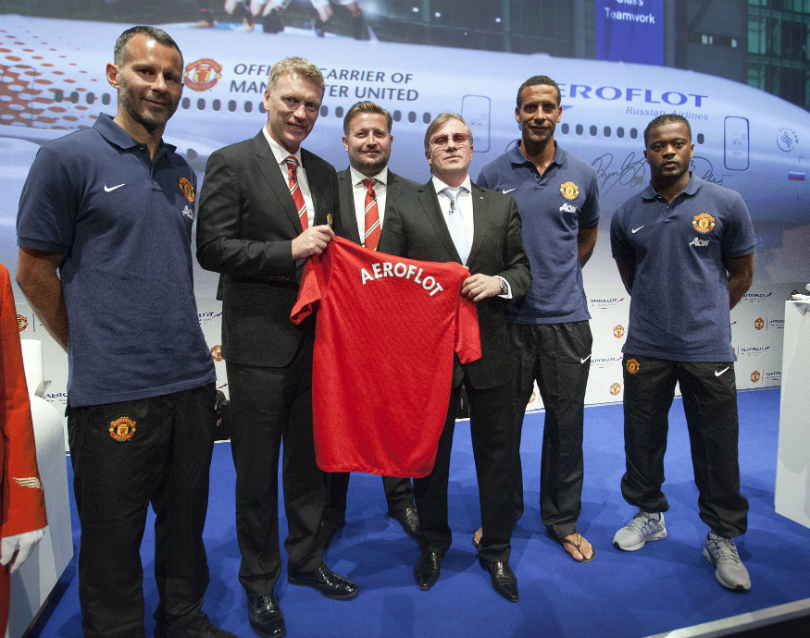
Pogba, as a magnetic athlete of unquantifiable commercial worth, has been a natural asset. However, through no fault of his own he has effectively become a symbol of football's focus on finance. It may not amount to a legitimate reason for resenting a player, but it provides an excuse – and, sadly, in most cases that's enough to dictate the mood. In that sense, he's a victim of his times. A thoroughly modern midfielder perfectly equipped to excel within this generation, certainly, but also – curiously – in the wrong place at the wrong time.
The game is shifting its shape and has long since been prioritising factors beyond the pitch, but that has never been more obvious than it is now.
Although reductive and facile, supporters likely saw Pogba's re-entry into English football as a form of corporate boasting
Consequently, it has never been more difficult to be a big-budget United signing. When his move from Juventus was completed, it was celebrated with a Hollywood vulgarity which some will have found antagonistic. The money that changed hands may have made that essential, but the average fan doesn't necessarily process the game in that way. Although reductive and facile, they likely saw Pogba's re-entry into English football as a form of corporate boasting.
So of course they were going to celebrate even his mildest failures.
Regrettably, there are also more sinister energies involved in the anti-Pogba movement, too. As was shown by the ethically egregious reporting aimed at Raheem Sterling in the aftermath of Euro 2016, to be young, black and successful is to be held to a different standard. It's a difficult allegation to prove and not one which should either be made lightly or broadly, but there is undeniably an unpleasant edge to the British public's relationship with Pogba.
To claim that as the sole or strongest factor would be wrong, but then, on the basis of recent events in this country over the past 18 months, to deny it entirely would be equally so. The social media echo chambers, in which almost every user paints him or herself in a perfect liberal light, make it tempting to believe that those attitudes are gone. But, alas, that superficial purity is reflective of nothing significant.
The online world may be full of virtue signalling and unimpeachable attitudes, but outside – where it actually matters – many prejudices are alive and well.

But that's a factor, rather than a full explanation. A more rounded perspective combines all the issues above with what has been known for decades: tribalism is largely characterised by infantile oneupmanship. As has been the case for many years, 2017 finds the football world divided between the haves and have nots. It's natural, therefore, for supporters of clubs who don't regularly benefit from eight or nine-figure transfers to appease themselves by any means necessary.
Old habits
Where there is a big deal, there is criticism. There is always a queue of people waiting to mock either the financial structure of a transfer or what it leads to on the pitch. In fact, rarely does a famous player move to anything other than the sound of forced laughter.
It's self-compensation and, ultimately, human nature: it's easy for someone to disparage what they don't have
Gareth Bale took both barrels from the Spanish press when he first joined Real Madrid, and Luka Modric was even described as the worst signing of the La Liga season shortly after making the same move in 2012. Closer to home and more recently, John Stones has faced awful criticism nearly every time he has taken the field for Manchester City, and the running commentary on Mesut Ozil's worth to Arsenal is ceaseless. It's self-compensation and, ultimately, human nature: it's easy for someone to disparage what they don't have.
And there isn't a supporter in the country who wouldn't want Paul Pogba.
But what sets him apart, what makes the tone around him so toxic, is this antagonistic confluence of factors. He's reached the summit of the game at a time when its ideologies are stretched to their limit, he's not playing particularly well, and he's lining up for a side who most neutrals enjoy seeing underperform.
Under those conditions, the criticism inevitably becomes absurd. So disproportionate, in fact, that the mitigating asterisks are often ignored.
He has played a lot of football over the past year, United are a side lacking a true tactical identity, and the pressure he regularly endures must be extremely difficult to bear. All are relevant and all provide a valid explanation for the past few months, but to expect nuance in this situation is to be naive and is also to forget how much, historically, the public enjoys a transfer failure at Old Trafford.
Pogba exists in the eye of a storm, under the dark clouds of commercialism and the heavy rain of envy and resentment; expecting the non-Manchester United community to overlook his missed passes, errant shots and awkward performances is to forget everything we know to be true about fandom and, sadly, England itself.
Seb Stafford-Bloor is a football writer at Tifo Football and member of the Football Writers' Association. He was formerly a regularly columnist for the FourFourTwo website, covering all aspects of the game, including tactical analysis, reaction pieces, longer-term trends and critiquing the increasingly shady business of football's financial side and authorities' decision-making.
